
10 minute read
Foreign Flag Registration
HAVE YOU CONSIDERED A Foreign Flag?
By Capt. John Kavanagh, Principal Lawyer - Master Mariner
Advertisement
There are potential advantages for Australian boat owners to register or ‘flag’ their boats on the shipping registers of other nations. Such registries, known as ‘open registries,’ or more colourfully as ‘flags of convenience’, compete internationally to attract ships to their flag. Open Registries offer ship registration services based on efficient service delivery and cost effectiveness. Most of the world’s shipping is registered in open registries such as Liberia, Panama and Marshall Islands, to name a few of the larger registers. Such nations become known as the ‘flag state’ for the ship.
The advantages of an open register are also available to the Australian boatowner, and this article will briefly describe how and why an Australian boat-owner might consider flagging their vessel in an open registry, after first considering the requirement to flag in Australia.
AUSTRALIAN FLAG
By contrast to Panama and Liberia, Australia is a ‘closed registry’, which means that the Australian ship register is only available to an Australian-owned ship. The opposite is also true, in that an Australian-owned ship must be flagged in Australia.
The great majority of Australians own their boats as ‘Australian Ships’. That is to say, the boat is owned by them personally or through an Australian company structure. That makes the boat an ‘Australian-owned ship’, and that is sufficient to ensure that the great majority of Australian-owned ships are registrable in Australia. Indeed, the Shipping Registration Act 1981 (SRA) requires a ship that is Australian-owned to be registered in Australia on the Australian General Shipping Register if:
1. The ship is greater than 24 metres in tonnage length (note that tonnage length is not the same measurement as length overall), or
2. The ship intends to go on an international voyage, regardless of its length. It is an offence for an unregistered ship to depart from an Australian port to a place outside Australia (s68 SRA) or to depart from any foreign port (s69 SRA) unless the ship is registered with the Shipping Registration Office, which is part of the Australian Maritime Safety Authority.
The effect of these registration laws are that all Australian-owned ships greater than 24m in tonnage length, and all Australian-owned ships going on international voyages must be registered in Australia.
But that is not the end of the story. The registration obligation only applies to legal ownership of a Vessel, and Australians can still own vessels beneficially through another legal structure. So, there is nothing stopping an Australian owner of a boat from transferring their legal ownership to a foreign company that they also control. By doing so, the choice of open registries becomes available.
Pacific Maritime Lawyers are Australian registrars for the Caribbean nation of St Kitts & Nevis (SKAN) The Wolf Hound – American schooner style is a Maritime Cook Islands (MCI) registered yacht
FOREIGN FLAG
One of the quirks of maritime law is that the flag of a ship applies the laws of the flag state to the ship wherever in the world it may be: whether on the high seas or cruising along the coast or in port. In some circumstances, the laws of a coastal state (the country where the vessel is being operated) may also apply to the vessel. So for example, Australia requires foreign-flagged vessels to take marine pilots before entering ports, and also applies immigration and quarantine laws to ships entering Australia. But on the whole, the laws that apply to a Vessel all of the time are the laws of the flag state. These laws will generally govern marine safety, employment, licensing of crew and so on.
Importantly, there is a maritime law principle known as ‘the internal economy rule’ that gives the laws of the flag state priority over the application of the laws of a coastal state when the issue under consideration is a matter of the ‘internal economy’ of the ship. So in general terms, the owner of a foreign-flagged ship with a foreign crew is not required to comply with the Australian Fair Work Act (although there are some exceptions for coastal trading permits and where crews of ships are majority Australian).
The advantages of foreign flag are then available for a boat that may be controlled by Australians, but legally owned by a foreign company and registered in a suitable open registry.
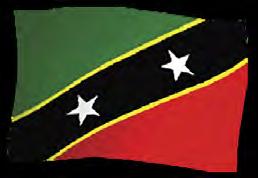
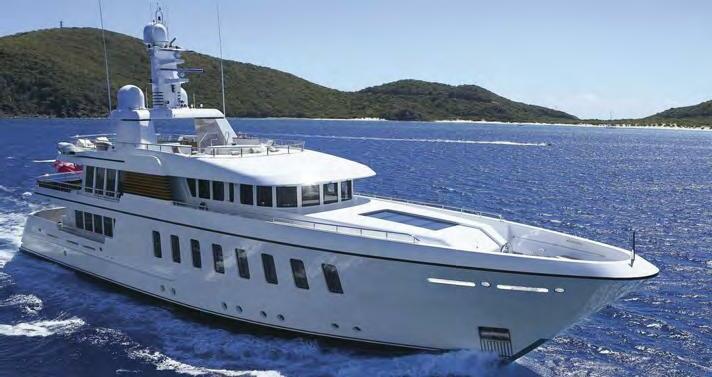
WHY CONSIDER FOREIGN FLAG?
There is a range of benefits associated with registering a boat in an open registry, including cost, efficiency and privacy advantages. The laws of the flag state that apply to their vessels is a vital consideration.
There is a tendency in many first world nations for regulation to become increasingly complex and for regulators to become increasingly bureaucratic in their approach to marine safety. By contrast, open registries tend to use specialist service providers in the administration of the registry, often in places outside of the country. For example, Liberia is administered by a private American company

Pacific Maritime Lawyers can assist clients with Maritime Cook Islands (MCI) registrations.
"Not only does the flag of the Cook Islands look attractive flying from the stern on a boat, but the MCI law is based on New Zealand maritime law, which shares the same heritage as Australian and British Maritime Law." - Capt. John Kavanagh, Lawyer
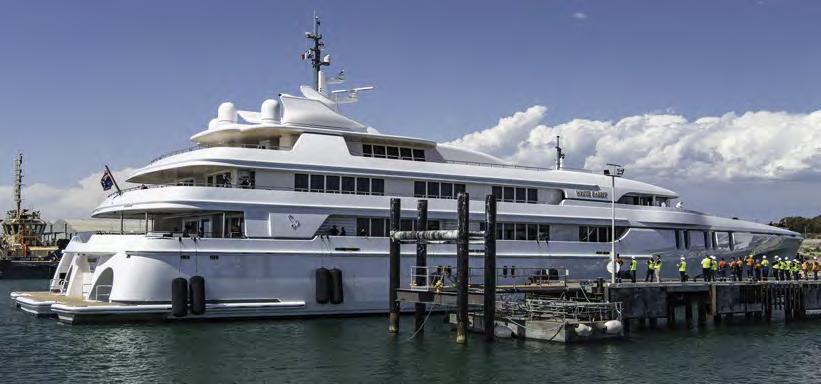
White Rabbit the largest aluminium tri-hull in the world that flags with the cook islands
ST KITTS & NEVIS (SKAN) OR MARITIME COOK ISLANDS (MCI)
At Pacific Maritime Lawyers, we are the Australian registrars for the Caribbean nation of St Kitts & Nevis (SKAN) and we routinely assist Australian owners to flag their boats with SKAN. The SKAN register is administered from London, and SKAN law is based on British Maritime Law that is still the international standard across the world. SKAN is a reputable flag, and is increasingly becoming a popular option for Australians. Closer to home, Maritime Cook Islands (MCI) is an increasingly popular choice. Not only does the flag of the Cook Islands look attractive flying from the stern on a boat, but the MCI law is based on New Zealand maritime law, which shares the same heritage as Australian and British Maritime Law. These are not the only options of course, and we can assist with the range of options available.
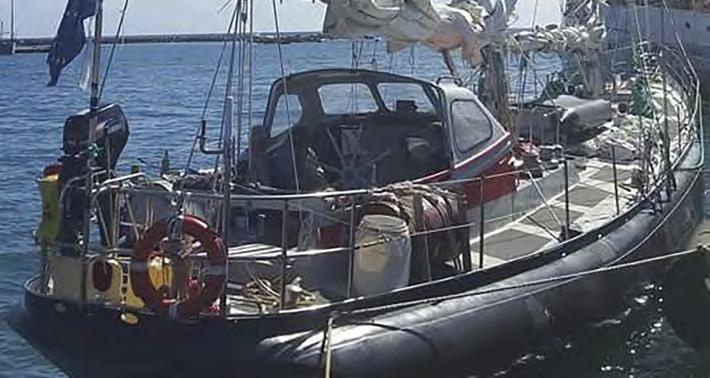
The Cook Islands Yacht – Able Tasman – arrived in Avatiu harbour
from New York, USA, and the Marshall Islands registry is administered by another private American company from Virginia, USA. These Open Registries also employ a range of specialist flag state inspectors and recognised organisations (generally class societies) to allow shipowners to certify and maintain their vessels to the relevant international maritime standards required by all coastal nations.
The comparable advantages of an open registry against the use of traditional closed registries (such as Australia) are almost self-evidenced by their enormous success. The last 40 years or so have seen that vast majority of the world’s merchant fleet be flagged in open registers.
These advantages are also available to the Australian boat-owner, at relatively modest cost. CAN I OPERATE A FOREIGN-FLAGGED VESSEL IN AUSTRALIA?
The short answer is, Yes. All vessels intended to be operated in Australia indefinitely need to be ‘imported’ and GST and Duty paid. But once that has been done, there is no legal impediment to a foreign-flagged vessel operating in Australia indefinitely. If the vessel is carrying passengers or cargo, then: • it may operate on intra-state voyages (such as operating in Queensland waters only) without any restriction; • Inter-state voyages are also available depending on the nature of the ship and cargo (if any) through the coastal trading permit scheme. We regularly find that boat owners are under the impression that a vessel being operated in Australia indefinitely must be Australian-flagged. That is not the case. If you want to know more about foreign flag for your boat, please reach out to us at info@pacificmaritimelawyers.com.au.


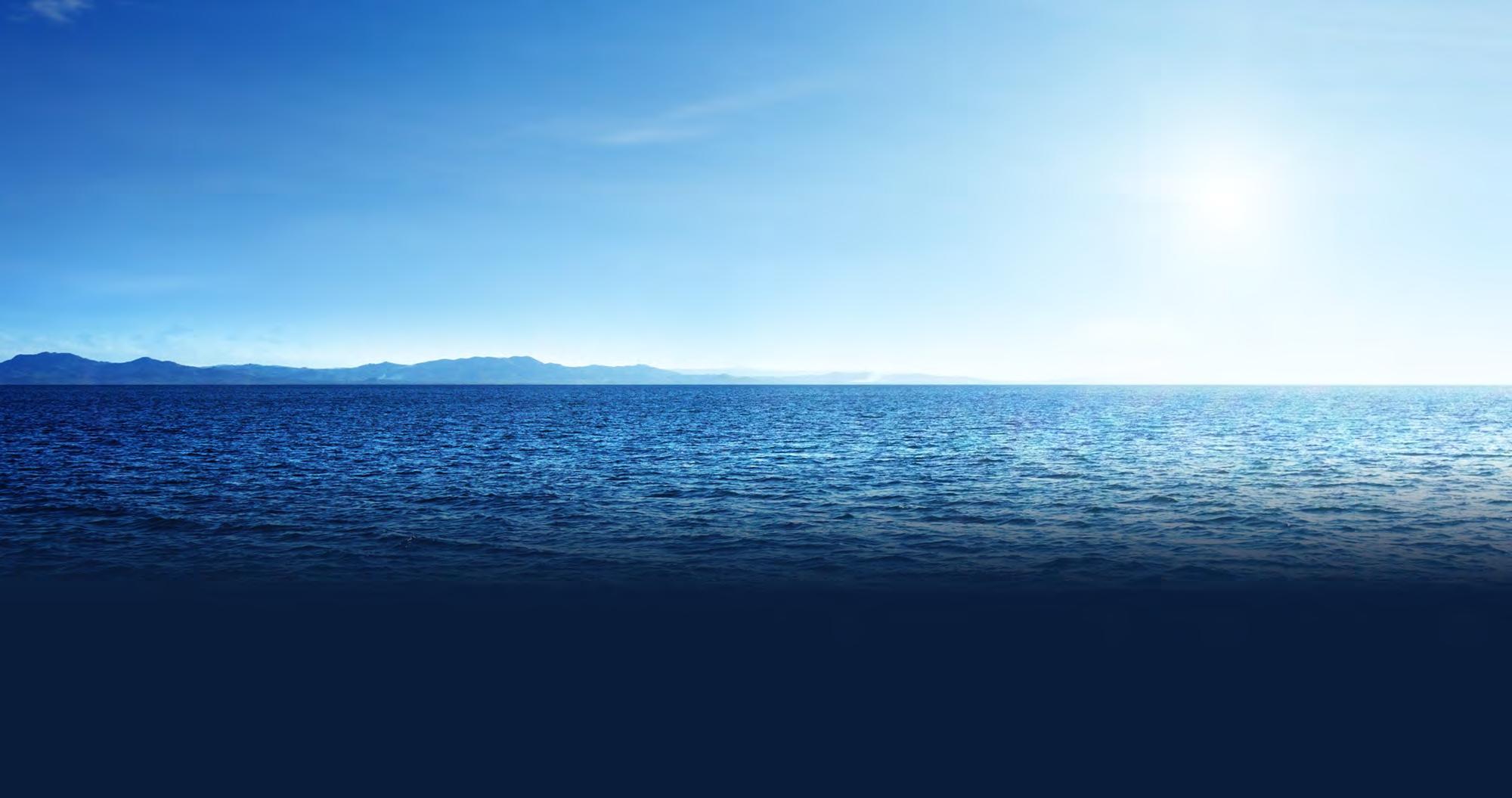
OUR LAWYERS ARE EXPERIENCED MARINERS AND MARINE REGULATORS
• Are you buying/selling/chartering a boat or maritime business? • Do you need help with risk assessments, audits, regulatory compliance and licensing and registration advice? • Do you need marine incident & pollution support? • Are you facing maritime commercial or crewing disputes? Capt John Kavanagh AFNI MQLS www.pacificmaritimelawyers.com.au1300 797 627 info@pacificmaritimelawyers.com.au
THE OKEAN 52’ FLY WIDEN YOUR WORLD

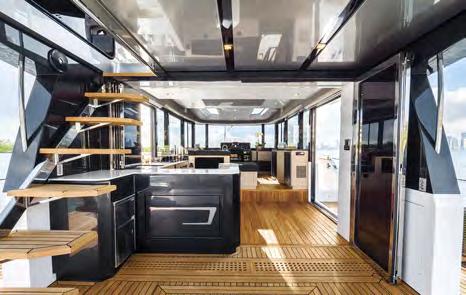
Launch of 52-foot yacht with folding balconies
Just arrived, the OKEAN Yachts factory in Brazil has delivered the new 52 Fly. The performance, design and refinement combined with sophisticated navigation systems creates an overall innovative and superior vessel. The boat captivates you with its highquality construction, open and integrated layout, stable navigation, and extendable sides that integrate the exterior and interior bringing the outside in and creating extra entertaining areas.
“OKEAN Yachts is a 100% Brazilian owned and built company with a great reputation in the open market niches across the world. The company has grown from strength to strength over the past 5 years producing vessels ranging from 50 feet up to 80 feet. This new model in the portfolio will certainly surprise with its comfort, constructive technology, prestigious navigation, with an open design that connects the interior of the boat with the sea,” explains Roberto Paião, CEO of the OKEAN Group. Discover OKEAN 52 - An impressive and striking design, the OKEAN 52 Fly, with its 15.14 meters of length, and over 6 meters width, with extended balconies, draws attention from the distance for its unique design that combines “adventure and elegance”. Italian architect Paolo Ferragni is the accredited designer and responsible for the creation of the entire OKEAN line. Mr Ferragni has made his mark with panoramic windows and glass doors that surround the boat which provide a 360° view from the inside to the outside area and can be enjoyed from anywhere within the vessel, from the kitchen to the dining table or at the main helm station. Another point of difference is the curved stylish furniture throughout this vessel, providing the comfort of a home and safety whilst navigating, and a retractable hide-away 50-inch built-in television in the main hall.
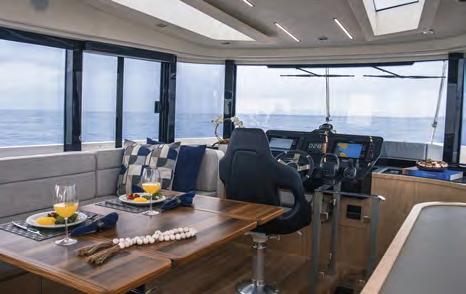
The OKEAN 52 also stands out with its large external decks, including extended side balconies on both port and starboard sides and a large hydraulic swim platform at the stern that further expands the beach club area and is also equipped with a grill and sink as well as a large sofa that connects to the kitchen located in the cockpit at the rear, making it ideal for socialising. The flybridge is a large “terrace over the water” with a second helm station, couches, and sun bed for relaxing and sunbathing. The bow offers a charming private lounge area, with sofas, a dining table and sun protection in the form of a custom awning. Downstairs to the lower deck are three very comfortable cabins, with capacity for seven people for overnight stays, with a master cabin amidships, a double bed fwd in the bow and another double bed with a bunk to the port side. The combination of colours, quality materials in high gloss, and a refined finish complete the interior design of the yacht. Australian distributor www.nauticalimports.com.au Contact sales team Phone: 0490 364 633
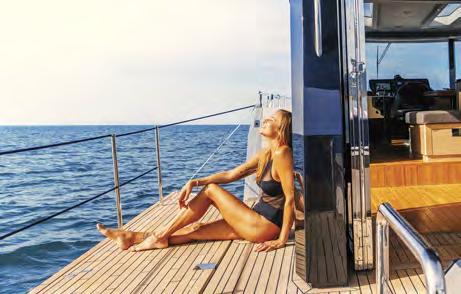
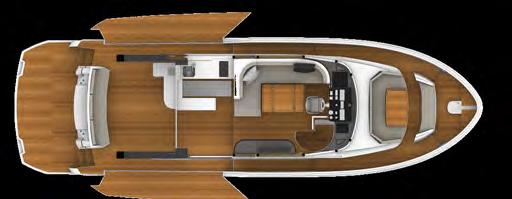
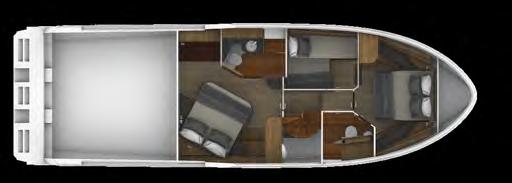
SPECIFICATIONS:
Total length 15.14 m Normal beam | Extended 4.50/ 6.31 m Propeller Draft (IPS) 1.35 m Light displacement 22 tons Dead Rise 12° Water Line Top Of Hard Top 5.50m Fuel Capacity 1,600 L Water Capacity 700 L Holding Tank Capacity 244 L Staterooms 3 Beds up to 7 persons Bathrooms 2 Air conditioning 7 units
EQUIPMENT HIGHLIGHTS:
Twin VOLVO PENTA IPS 700 powered by inline 6-cylinder D8, 7.7-Liter common rail diesel with supercharged turbos. Matched with IPS steerable pods, twin counterrotating propellers, electronic vessel control (EVC) system and joystick maneuvering. VOLVO electric IPS power steering and DPS system at upper helm.










